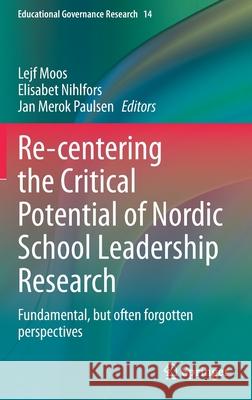Re-Centering the Critical Potential of Nordic School Leadership Research: Fundamental, But Often Forgotten Perspectives » książka
topmenu
Re-Centering the Critical Potential of Nordic School Leadership Research: Fundamental, But Often Forgotten Perspectives
ISBN-13: 9783030550264 / Angielski / Twarda / 2020 / 247 str.
Re-Centering the Critical Potential of Nordic School Leadership Research: Fundamental, But Often Forgotten Perspectives
ISBN-13: 9783030550264 / Angielski / Twarda / 2020 / 247 str.
cena 522,07
(netto: 497,21 VAT: 5%)
Najniższa cena z 30 dni: 501,19
(netto: 497,21 VAT: 5%)
Najniższa cena z 30 dni: 501,19
Termin realizacji zamówienia:
ok. 22 dni roboczych.
ok. 22 dni roboczych.
Darmowa dostawa!
Kategorie:
Kategorie BISAC:
Wydawca:
Springer
Seria wydawnicza:
Język:
Angielski
ISBN-13:
9783030550264
Rok wydania:
2020
Wydanie:
2020
Numer serii:
000480886
Ilość stron:
247
Waga:
0.55 kg
Wymiary:
23.39 x 15.6 x 1.6
Oprawa:
Twarda
Wolumenów:
01
Dodatkowe informacje:
Wydanie ilustrowane











